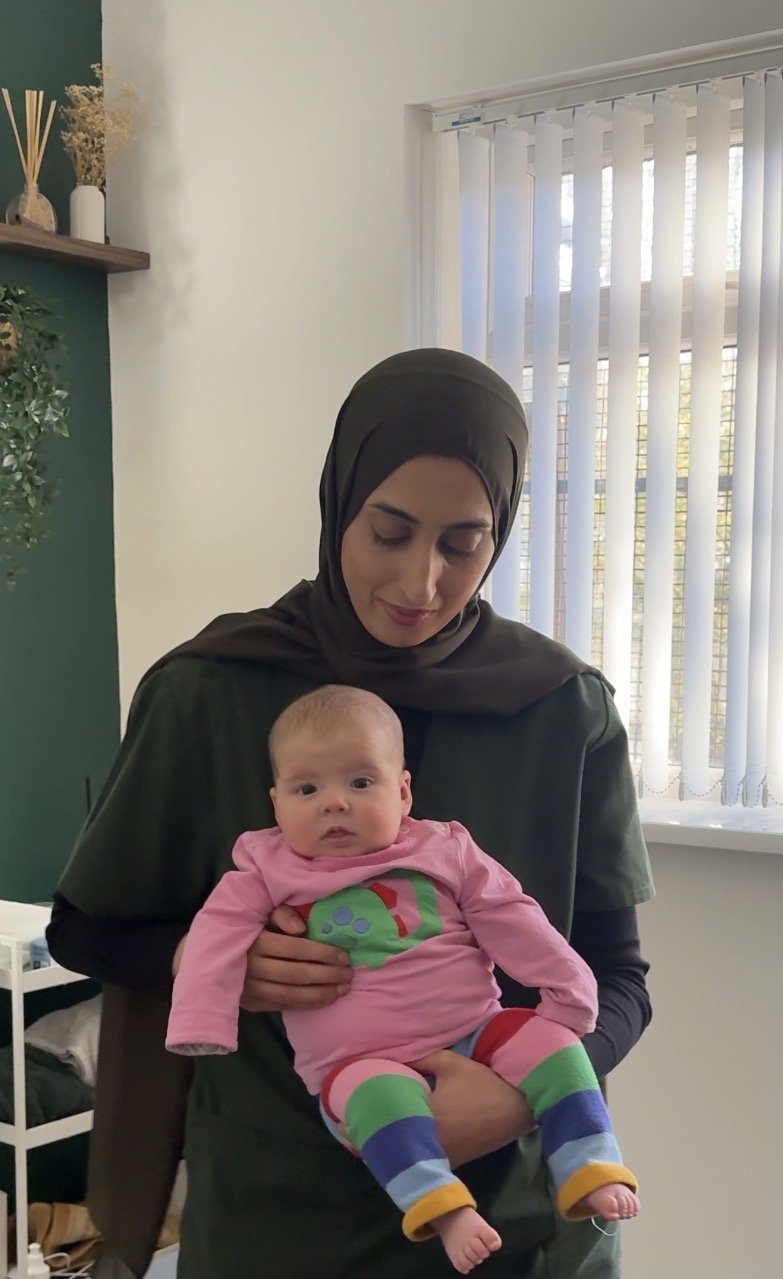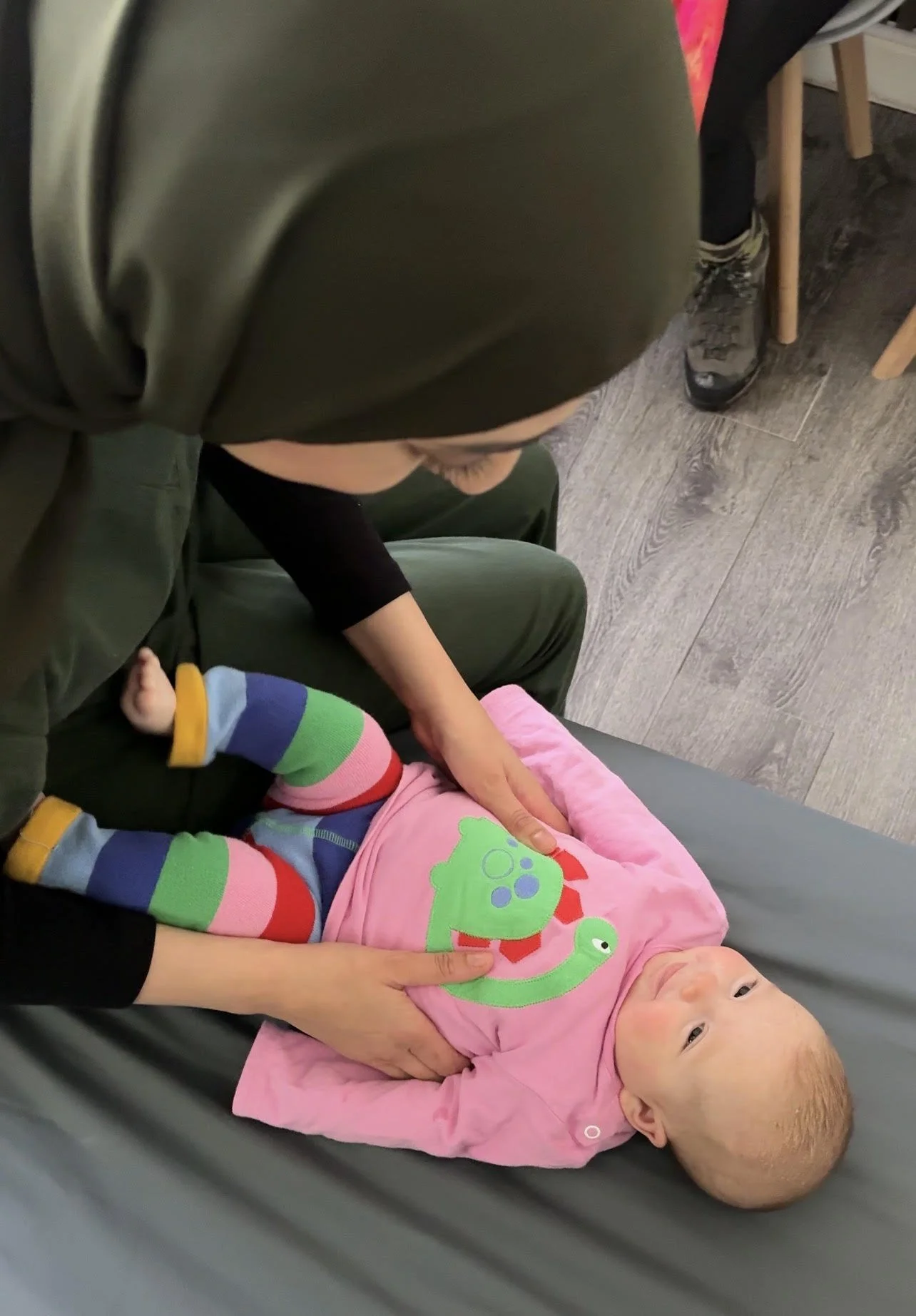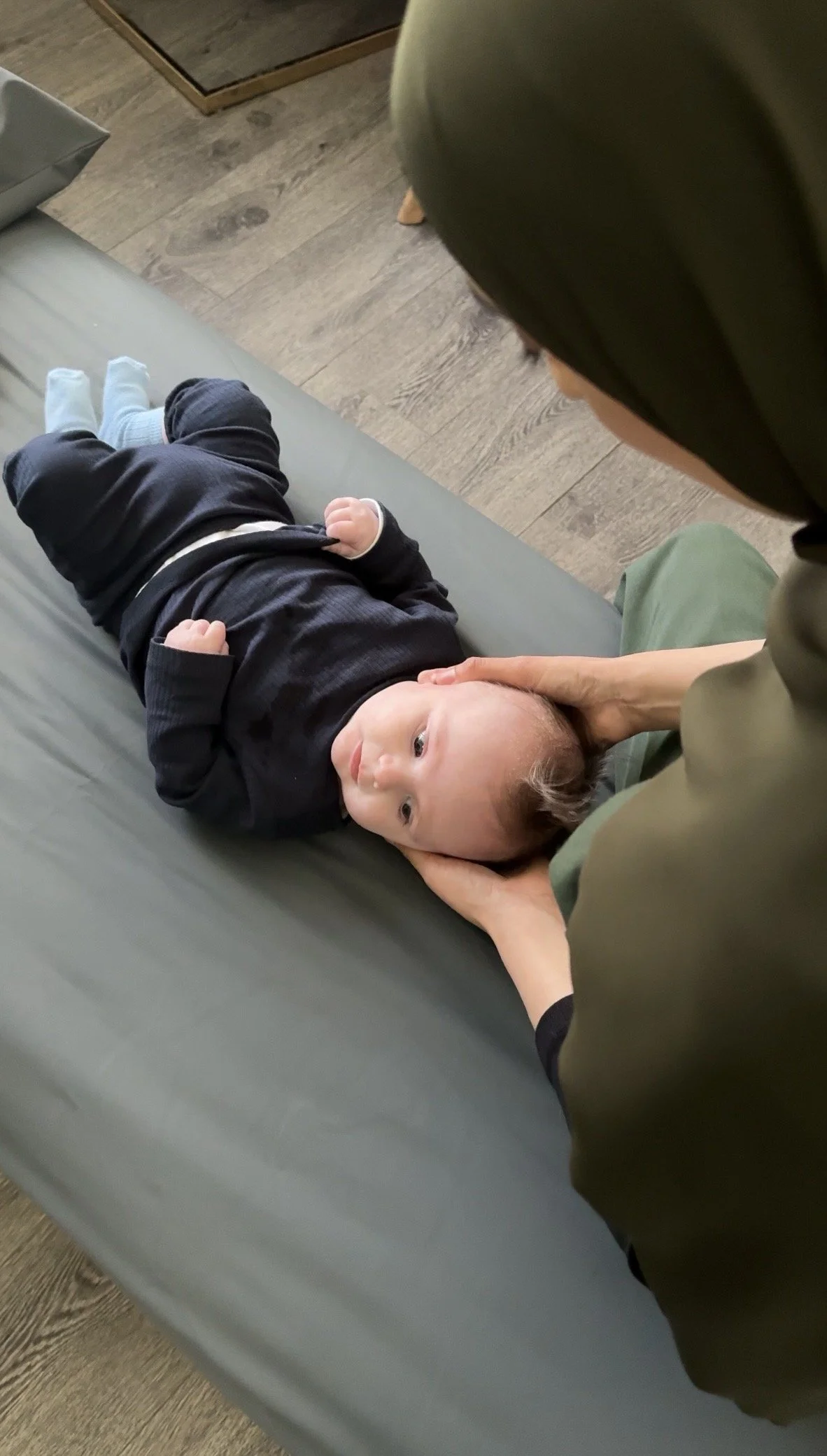Baby Clinic
Cranial Osteopathy could have cropped up in many a conversation for you. You may have heard it from other mums, your health visitor, your midwife or even your GP. Not to worry if you’re still none the wiser. This page is dedicated to helping you with frequently asked questions about Cranial Osteopathy treatment for babies and young children.
What?
Cranial Osteopathy is a gentle and subtle form of Osteopathy treatment. Used to treat babies and young children. By employing the use of gentle manipulation of head and spine. This helps to ease baby, improve comfort which is huge relief when baby is struggling to settle or trouble to pass wind.
Osteopaths may work alongside lactation consultants to help with breastfeeding postural advice. Cranial Osteopathy is non-manipulative, gentle and safe.
Treatment
Cranial Osteopathy is non-invasive, safe and gentle. The treatment helps to facilitate stress release of the body which may be caused by childbirth and labour. Cranial Osteopathy helps to relieve this stress by working with involuntary movement (minute oscillations).
Cranial Osteopathy can help with babies who suffer with constant crying, wind, colic and irritability. An added benefit may possibly be to help baby with their sleep.
Why?
The birth process can be traumatic for both mum and baby. The stress and pressure of labour can cause trauma to the baby. Including bruising and head shape being an ‘odd’ shape. This can lead to long term discomfort for baby. This is where Cranial Osteopathy comes in, helping babies struggling with sleep or to settle.



